Will a meditation retreat be too triggering for my anxiety and/or PTSD?
I get it... I was one of those people who would shut my eyes and feel more chaotic. I felt more anxious and sometimes very frightened and agitated. Meditating seemed to make things worse rather than better. I muscled my way through the practices because I heard it could help. And I was sure I'd already tried everything else.
The way meditation was taught when I first found these practices 15 years ago wasn't trauma-informed. Most of us believed that if we just sat long enough, we'd have a breakthrough into calmness and clarity. This was true for some, but for many, it wasn't as healing as we thought it was supposed to be. My nervous system was already used to intensity and muscling through my suffering. I needed more gentle-ness and less rigidity.
Through years of trial and error through various mindfulness and meditation practices, several teachers and trauma-informed somatic psychotherapy, I found a sweet spot. I learned to work with my own nervous system using mindfulness and meditation in a way that was attentive, kind and calming. I am so grateful that this fostered a sense of safety so that I could finally let myself settle in and sit still with myself instead of going into fight/flight or freeze every time I closed my eyes.
Since I began sharing these practices over a decade ago, I have also learned immensely. In combining the information I've gained working with folks one-on-one in therapy to help regulate nervous system responses with what I've learned from facilitating various types of retreats, I am proud to be able to offer retreats that people say they feel more safe and able to take in the teachings and practices.
Thankfully with all this new research and the various experiments in teaching, we continue to find ways to help more and more people access mindfulness in ways that work for them and their nervous systems. Whether or not folks have extensive trauma or just a bit of anxiety, this new wave of teaching trauma-informed mindfulness in a more gentle and inclusive way is helping so many more people find a sense of stability and safety and calmness inside. That's not to say that mindfulness and meditation works for everyone - some people need body-based trauma therapy before they dive into mindfulness or a meditation retreat to help create a safe and stable base from which to practice on.
Currently, I'm sitting here in my sunshine filled office on this 70 degree March day in Portland reflecting on what I love about this upcoming retreat. I love how it supports this new wave of mindfulness and re-wiring our minds and hearts with attention to folks that have had trauma and a lot of anxiety. Instead of more traditional retreats, with a more rigid way of practicing Vipassana, it's very gentle and allowing. Titrating between depth and lightness; intensity and gentleness; in and out.
This new wave of mindfulness teaching helps folks that tend to feel triggered by silence and meditation feel much more safe and at ease in the practice through adding additional practices like relational mindfulness, shorter periods of meditation, taking care of the body and adjusting posture so it's supportive and comfortable, time and space for walking the land. The instructions given will give various modifications so that folks have options of how to be in a practice of a way that feels nurturing AND effective AND kind.
Read this recent article titled "The vagus nerve, emotions and the difficulty with mindfulness practices" by Tracy A. Andrews, MSOM, LAC. It speaks directly towards this: "it’s a beginning of understanding why traumatized people have such a hard time with mindfulness and why mindfulness in principle doesn’t work for traumatized people because they cannot feel.” Van der Kolk had sent many of his highly traumatized patients to do mindfulness exercises with Jon Kabat-Zinn and found that many of them were returning in a state of upset and agitation.
“As they became silent and started to pay attention to themselves, they get overwhelmed with the physical sensations and they would flee, because being mindful means that you get confronted with your internal world.” In other words, the sensations of the internal world can be so intense that, lacking the tools to work through those sensations, people dissociate during mindfulness exercises. This is not limited to mindfulness exercises but happens in other types of movement, meditative, or healing practices, such as qigong, yoga or massage."
In light of all of this info, if you've been wavering on attending the upcoming Women's retreat, because of feeling triggered or activated, please do get in touch with me and we can talk about if it's right for you and see how I can best support you. And remember... ONLY TWO WEEKS LEFT until the April Women's Retreat here in Portland and ONE WEEK LEFT to register. Here's the link to registration and more info. See you there!
